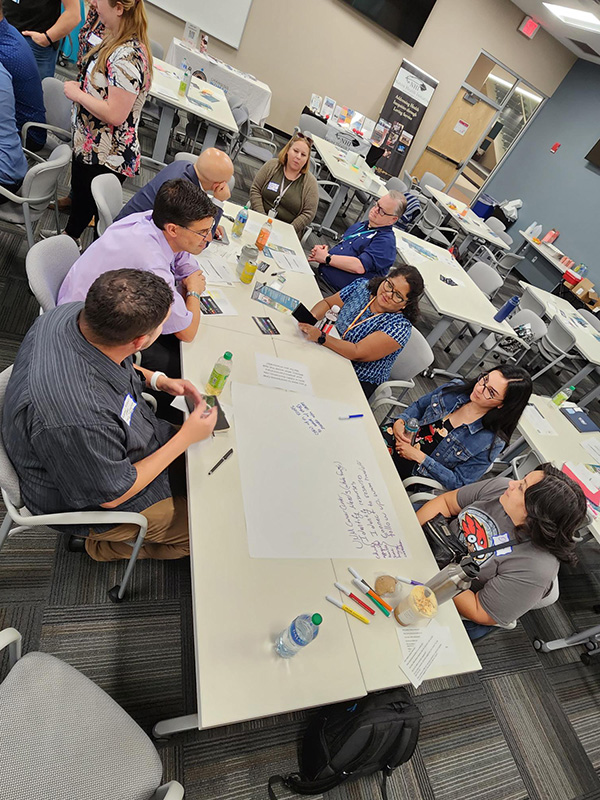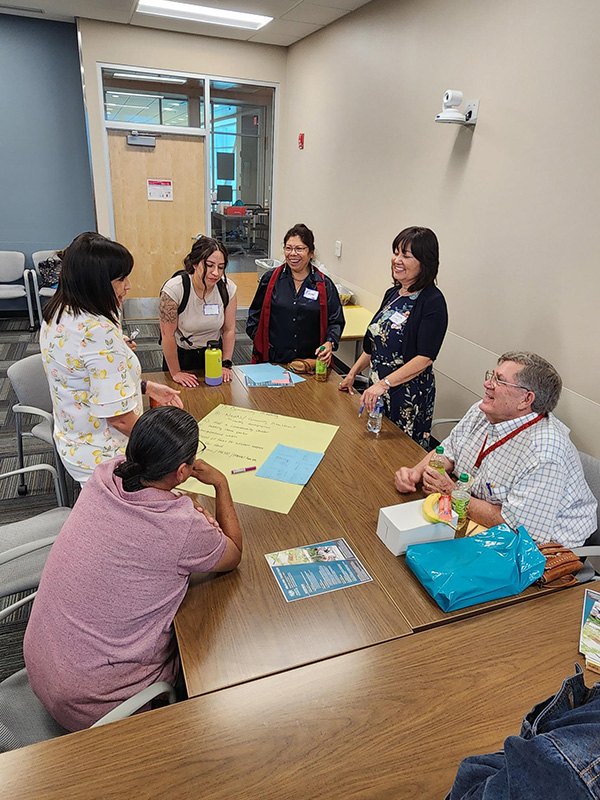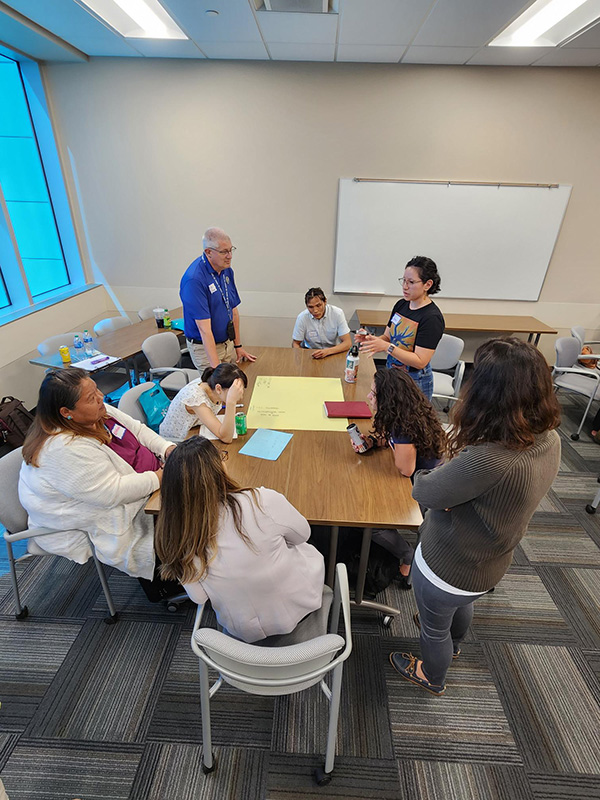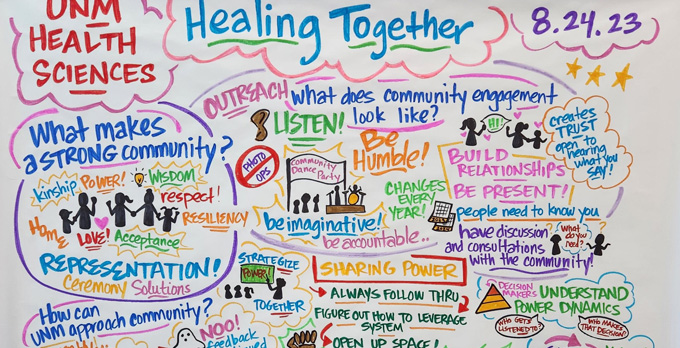Community leaders who work with groups throughout New Mexico came together, to work together on ways to engage the community, in a symposium hosted by The University of New Mexico Health and Health Sciences. Healing Together, a Symposium on Equitable Engagement with our Communities, brought nearly 100 people together for a different style of learning. There were no PowerPoints in the 4-hour event; live art helped capture the event and the speakers were community leaders.
The day began with traditional medicine from Pueblo at Laguna Community Health Educator Karen Waconda-Lewis, as she helped to set the intention for deep listening.
A panel discussion on community engagement opened the event, with one participant summarizing what they heard as, “it is about building long term relationships that are not confined to grant cycles or funders priorities, but which are centered in deep listening and compassion.”

From there, there were skill building sessions on sharing power, strength-based approaches to health led by Changing Women Initiative and Native Health Initiative, and UNM Community Health Worker Initiative (CHWI) sharing how to best engage with communities.
As the group gathered together, Lisa Cacari-Stone, PhD, MA, MS, professor in the UNM College of Population Health and Francisco Ronquillo, health extension regional officer with UNM Health Sciences, helped tie community engagement to the health equity work that the UNM Health System has as identified as a top priority.

Finally, the event closed with a large circle, with people sharing about their personal next steps. Again, with traditional medicine, this time offered as a smudging by Tom Chavez, PhD, assistant professor in the School of Medicine in the Department of Psychiatry and Behavioral Sciences.
“I am really excited to see how our planning committee, which included many UNM entities and community leaders, was able to bring this conversation around how to best engage with our communities to our UNM community. It was a chance to listen and learn from voices within and beyond our campus,” said Donna Sedillo, MS, of UNM’s Clinical and Translational Science Center (CTSC) that helped put on the event.

One of the outcomes from the event, based on feedback from participants, will be a guide for community engagement that UNM Health and Health Sciences faculty and staff can utilize.
UNM Health Sciences leadership in attendance included Douglas Ziedonis, MD, MPH, Executive Vice President for UNM Health Sciences and CEO of the UNM Health System; Donald Godwin PhD, Dean of the UNM College of Pharmacy; Carolyn Montoya, PhD, RN, PNP-PC, FAANP, FAAN, Dean of the UNM College of Nursing; Patricia Finn, MD, Dean of the UNM School of Medicine; Cacari-Stone; and JP Sanchez, MD, Acting Vice President for the HSC Office for Diversity, Equity and Inclusion. State Sen. Linda Lopez (D) was also in attendance.
The event was unique in the number of partners that were engaged. Community partners included City of Albuquerque Environmental Health Department and Office of Civic Engagement, ENLACE NM, Black Healthcare Providers of NM, Future Focused Education, Center for Intercultural Care, Changing Woman Initiative, Native Health Initiative, NM Alliance of Health Councils, and Health Equity Council.
UNM partners included the UNM Clinical and Translational Science Center, the UNM College of Population Health, the UNM Health Sciences Office of the Executive Vice President, UNM Transdisciplinary Research, Equity and Engagement Center (TREE Center), HSC DEI Office, UNM School of Medicine DEI Office, UNM Comprehensive Cancer Center, the Community Health Worker Initiative (CHWI) Health Equity Team, UNM Foundation, and UNM School of Medicine Alumni Affairs Office.
